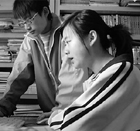-
-
China Daily E-paper
Editorials
Wary about our donations
(China Daily)
Updated: 2010-05-04 07:58
 |
Large Medium Small |
Sympathetic people from around China might have poured in nearly 4.2-billion-yuan in earthquake relief to Yushu, Qinghai province, but that does not mean they're indifferent about how the donations are handled.
With the exception of corporate donors drumming up publicity, most donors contributed without wanting anything in return. Still, all of us who contributed either money or other forms of aid are seriously concerned about the way our charitable donations are funneled. We all want the funds to be used where it is most needed.
| ||||
In China, where nongovernmental charitable institutions are underdeveloped, official charitable organizations remain the main recipient of donations. But the close association these organizations have with the government and their disregard for transparency have made many potential contributors think twice. Serious donors cannot ignore the possibility of graft.
There is no better antidote for public suspicions than transparency. Transparency can on the one hand deter potential abusers from committing fraud and at the same time instill confidence in donors.
Yushu can set a wonderful example in this regard. The relatively limited scope of the disaster region is an advantage for relief work there. It is therefore easier to arrange and monitor the use of donations.
Civil affairs authorities have promised to provide authentic and precise statistical information about donations. Donors also deserve to know how their contributions are used. That should not be difficult for a place as small as Yushu.












